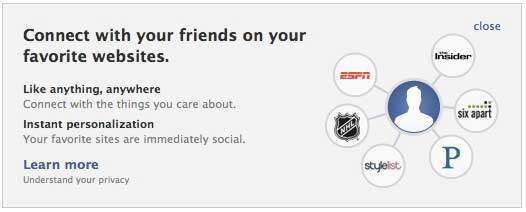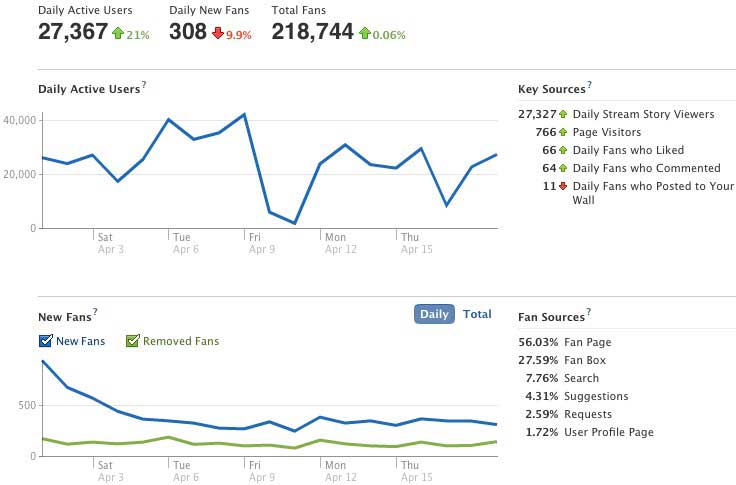If trying to figure out how Facebook fits into your future marketing plans simultaneously excites and scares the heck out of you... don't worry, you are not alone.
In fact, although much of what you might have heard recently about Facebook likely involves privacy concerns—all of which are in the process of being ironed out—many of the updates coming out of Facebook's F8 Developer Conference this past April should only make it easier for marketers to engage with their key stakeholders on the social-networking giant.
There is a good chance that if you are reading this article you already have a personal Facebook account. There's also a possibility that many of you may be trying your hand at tapping into the power of the 400 million-plus members on Facebook.
However, Facebook's recent announcements on how its platform is evolving may be as clear as mud.
To that end, the goal of this article is to break the latest news into four areas:
- Graph API
- Analytics
- Storable data
- Social plug-ins
Within each area, we'll translate the technical into what it means (at a high level) and, most important, how brands will benefit.
Graph API
The biggest change to the Facebook Platform is the Graph API. The news here is that Facebook is now directly taking on the Googles, Yahoos, and MSNs of the world by using Facebook's social graph as the "glue" across the social Web.
Not only can you "like" people, products, or pieces of content almost anywhere on the Web, but members can also share, log in, and even chat or email with other Facebook members even when they aren't on Facebook proper.
How brands and members benefit: The win here is that members have a central place to share their opinions, activities, and content while controlling who sees what and when.
Brands will benefit because they can allow members to drag product, service, and content "likes" back to Facebook—actively or passively—to share with the 400 million-plus other members there.
The one downside is that in lowering the barriers to entry for logging in or commenting and participating on their own websites, brands will lose some direct access to customer and prospect e-mail addresses.
Analytics
Facebook also released a whole new suite of analytics, including the ability to get Facebook Insights for applications, information on referral traffic, and details on everything from tab views to how users responded to your prompts for permissions. And all those analytics now have demographic information baked right into them.
How brands and members benefit: This treasure trove of analytics is a brand's dream come true. Until this point, Facebook Insights has been sorely lacking in the granular detail that brands and their agents crave. And being able to finally provide that information is a huge win for Facebook.
As mentioned above, with the upside benefits of better and richer analytics for brands come increased privacy concerns. Fortunately, Facebook CEO Mark Zuckerberg is now addressing many of those concerns head-on in the face of much public criticism.
The one fact that gets lost in the shuffle is that better-designed experiences with greater context sensitivity should lead to more meaningful interactions between brands and consumers on Facebook.
Storable Data
Facebook had enforced a 24-hour time limit on how long personal user data could be stored on a brand's servers, but as of the week of the F8 Conference announcements, that is no longer the case.
Combine sortable data with richer analytics, and the update gives brands much greater database-marketing capabilities in the long run.
How brands and members benefit: As mentioned above, the biggest impact from the storable data change on the Facebook platform is the ability to persistently store more data. That, combined with the ability to capture the data across the social Web (using the Graph API), should lead to increased opportunities to relevantly market to members.
Though that does raise additional privacy concerns for members, the benefit is fewer poorly targeted ads and offers—and, ideally, better brand experiences on pages and groups.
A second benefit is that without third-party apps needing to constantly ping Facebook servers for the same data day after day, performance should improve, allowing Facebook to scale more effectively (read: no Twitter fail whales in Facebook's future).
Social Plug-ins
Finally, Facebook has enabled external sites to insert metadata and iframes to bring Facebook functionality to their sites without actually handing over any of a user's personal Facebook data to those sites.

Through the magic of "instant personalization," content providers can display socially context-sensitive lists of which articles or songs were most liked by a user's Facebook peers. And anything on the Internet can become "likable" with the addition of one line of code.
How brands and members benefit: Brands gain the benefits of the social Web without having to migrate their assets to Facebook.com. And Facebook gains a toehold in properties outside its core site, while also having the opportunity to harvest a mountain of metadata. It's a win for both.
In theory, having social context for everything you see and do online can be a big plus, since most of us value our friends' recommendations and opinions. But it's also possible that it could start to feel a little crowded if you have the sensation that you're hauling your circle of Facebook friends around with you everywhere you go online.
* * *
As you've probably inferred from reading this article, brands and Facebook will benefit the most from the four big changes announced at the F8 Conference.
However, members will also win with better branded experiences and increased opportunities to share whatever they like with whomever they like in one centralized location.
A lot of how Facebook's changes are received over the long haul will of course depend on how Zuckerberg and Facebook handle the privacy backlash.
Arguably the biggest impact from Facebook's F8 announcements may stem from the benefit of competition that comes from creating a worthy adversary of Google and, to a lesser extent, Yahoo and MSN.






